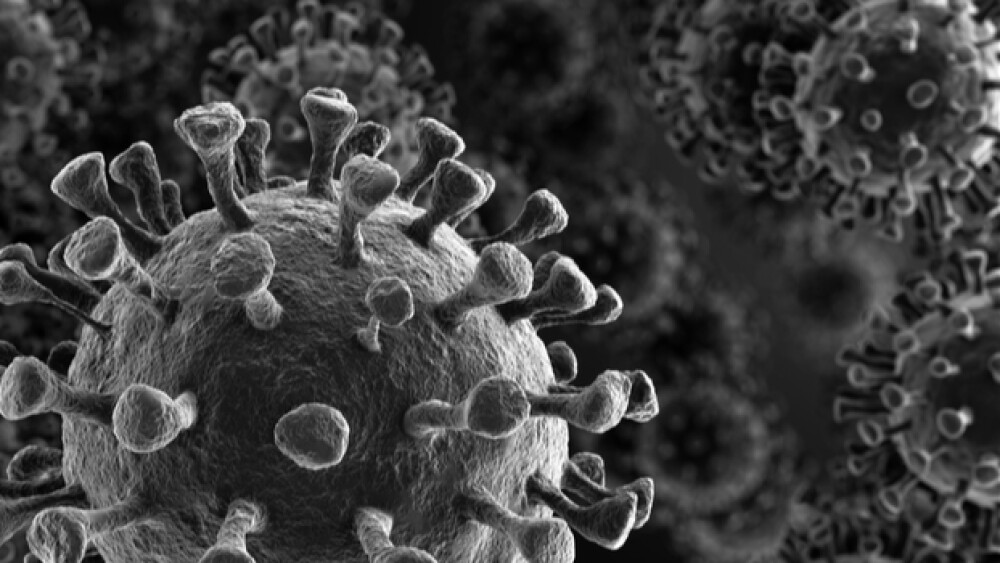Numerous organizations are cancelling or postponing activities that involve large groups of people.
It was reported earlier that 15 employees of Cambridge, Massachusetts-based Biogen who attended a management meeting in Boston have now tested positive for the virus. The numbers are rapidly increasing, however. The company, which does not focus on infectious diseases, vaccines or antiviral therapies, but rather on neurodegenerative diseases like Alzheimer’s, spinal muscular atrophy and multiple sclerosis, is nonetheless an indicator of the perils companies that are working on responses to the coronavirus outbreak are facing—and the ways in which the virus can spread after a public gathering.
In the case of Biogen, 175 employees attended the management meeting. Numerous organizations are cancelling or postponing activities that involve large groups of people. BIO, the International Convention being held in San Diego from June 8-11, announced plans to hold the convention, but announced it was “closely monitoring new developments around the novel coronavirus (COVID-19) outbreak and adhering to the guidelines and directives from government and health officials. We expect the COVID-19 situation to develop through several phases in the weeks between now and BIO’s Convention, optimistic that our biotechnology industry event can be part of improving human health.”
However, The Scientist announced a number of scientific conferences that have been postponed, although that is likely in flux as well. The American Association for Cancer Research meeting being held in Denver from March 12-15 has been postponed. The American Chemical Society (ACS) meeting being held in Philadelphia from March 22-26 is proceeding as planned, but the planners are developing a COVID-19 Action Plan. The American College of Cardiology meeting scheduled for Chicago from March 28-30 has been canceled. Generally, the further out the conference, the more likely they are—at this time—to still be planned, although that could change depending on what happens with the epidemic and the conference location.
“There’s a lot of handshaking, there’s a lot of being in close quarters, and that puts you at risk,” Manish Trivedi, director of the division of infectious diseases at AtlantiCare in New Jersey, told The Wall Street Journal. “You eat something. You rub your eyes. You touch your face.”
The strategy meeting was an annual planning event for Biogen, which has about 7,500 employees globally. After the meeting, several attendees began reporting flu-like symptoms. Biogen quickly contacted public health officials and people who attended the meeting were asked to stay home and monitor symptoms for 14 days, according to the Massachusetts Department of Health.
As officials track the exposure, it has been reported that a second person in Indiana who attended the meeting has tested positive for the coronavirus. The patient “developed mild flu-like symptoms” a day after the meeting. The individual is currently in isolation, but not hospitalized.
“With the increasing number of COVID-19 cases in the United States and the fact that we are a mobile society, this new case isn’t surprising, but we know it causes concern in the community,” stated Indiana State Health Commissioner Kris Box. He encouraged Indiana residents to take “common-sense precautions” and educate themselves.
To date, Massachusetts health officials have identified 13 new possible COVID-19 cases in the state, with nine connected to the Biogen meeting. Of 41 cases in the state, 32 people were either at the meeting or associated with people who attended.
Of more immediate concern are health care workers, who are at the front line of treating the disease. A number of health care workers in China were infected during the outbreak, including several physicians who died of it, such as Liu Zhiming, director of the Wuchang hospital in Wuhan, the epicenter of the outbreak.
“You are expected to be there and stay there and take care of those people, but know that you are at risk and know that you have a family to go home to,” Salah Qutaishat, an infection prevention epidemiologist who worked for the Marshfield, Wisconsin health system that identified the first U.S. case of monkeypox in a 2003 outbreak, told STAT.
The Canadian Federation of Nurses Unions recently issued a statement demanding that all frontline health care workers at risk of coronavirus exposure be issued at minimum a N-95 respirator as well as other appropriate safety gear.
Both Eli Lilly and Takeda Pharmaceutical have encouraged employees to work from home if it is possible. Other companies, such as Merck & Co. and Sanofi, indicated they are closely monitoring the situation.
“We have a unique responsibility to ensure continuity in our manufacturing facilities and R&D labs,” Lilly told BioPharma Dive. “By minimizing staff in our offices, we are reducing risk of inadvertent transmission to workers who don’t have the option of continuing to do their important work from home.”
Other companies, such as Bristol Myers Squibb, GlaxoSmithKline and Vertex have implemented travel restrictions for staff.





